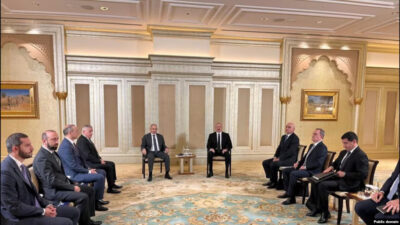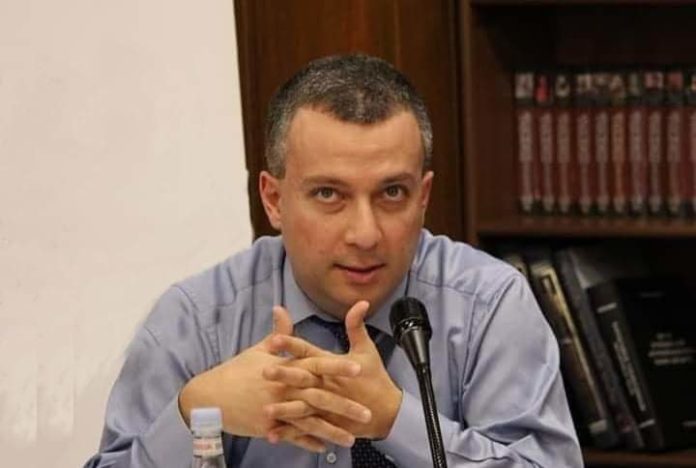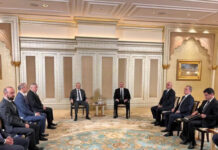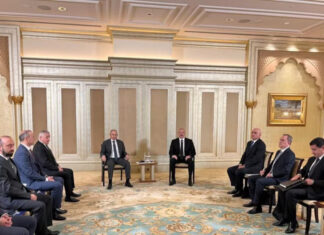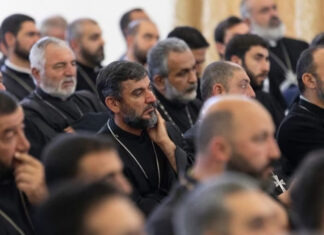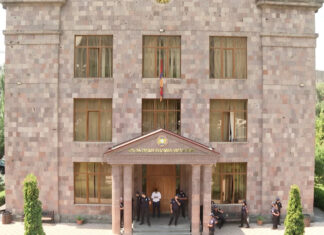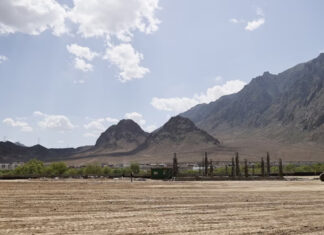Three months ago, hopes were high that Armenia and Azerbaijan were close to signing a peace agreement by the end of 2023. The logic behind this was the narrative that the status of Nagorno-Karabakh and the fate of the Armenian population were the main obstacles to the peace agreement. After the military takeover of Nagorno Karabakh by Azerbaijan in September 2023, what could else hinder the peace process? Everything was ready to finalize the agreement during a meeting in Granada on October 5, and then sign the peace deal in Brussels or Washington by the end of 2023.
Then, suddenly, Azerbaijan pulled away from negotiations. Azerbaijani President Ilham Aliyev canceled his visit to Granada, rejected the EU offer to hold a leaders’ summit in Brussels by the end of October 2023 at the “original Brussels format,” and canceled the meeting between Armenian and Azerbaijani foreign ministers scheduled for November 20. Azerbaijan hinted that it was ready to continue negotiations in Moscow, use the 3+2 platform, or launch bilateral talks. Armenia resisted the idea of resuming negotiations in Moscow, stating that it was interested in meeting on Western platforms, but agreed to have bilateral talks at the end of the day.
On November 30, the Armenian and Azerbaijani Commission on delimitation and demarcation met at the Armenia – Azerbaijan border and agreed on its charter. On December 7, Armenia and Azerbaijan made a significant step forward by adopting a bilateral statement on pushing forward the peace process, exchange of POWs, and also Armenia’s support to Azerbaijan to host the UN’s climate change conference (COP29) in Baku in 2024.
Meanwhile, the US Assistant Secretary for European and Eurasian Affairs, James O’Brien, visited Baku and met with President Aliyev on December 6. According to different sources, Armenia and Azerbaijan agreed to hold a foreign ministers’ meeting in January 2024. As it became clear that no peace agreement would be signed between Armenia and Azerbaijan by the end of 2023, experts and politicians sought to anticipate what 2024 would bring to the Armenia – Azerbaijan peace process.
There could be different scenarios, and it is incredibly challenging to assess the likelihood of each of them, especially given that the process is heavily influenced by external factors, such as the war in Ukraine, the results of the upcoming EU and the US elections, and others. However, one thing is clear: Azerbaijan holds the initiative, and Baku will decide the course of history. Aliyev may decide that he needs a peace agreement before the February 7, 2024, snap Presidential elections to close “the Armenia and Nagorno Karabakh chapters” and participate in the elections with the program for the new “post-conflict Azerbaijan.” Another option is to sign a statement with Armenia on bilateral relations before the elections, which could have patterns of the road map while continuing pressure on Armenia after February 7, 2024.
However, President Aliyev may decide that he does not need any agreement or statement with Armenia before February 7, 2024, and take part in the elections as a national hero who restored Azerbaijani territorial integrity and achieved more than his father. Even if the Armenian and Azerbaijani foreign ministers meet in Washington in January 2024, it will not result in any breakthrough. If nothing is signed before February 7, there could be two scenarios afterward.
